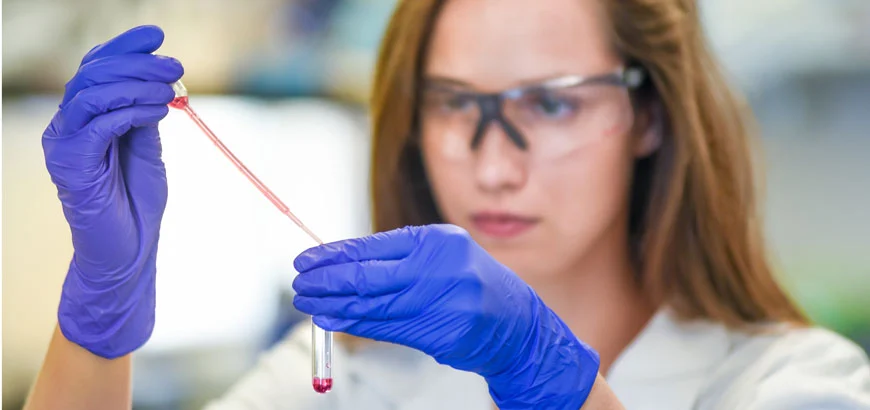Read time: 4 minutes
Cell and gene therapies (CGTs) have evolved from science fiction to clinical reality in the last decade, bringing new hope to patients with serious diseases such as sickle cell disease, melanoma and leukemia. Yet, significant hurdles still stand in the way of widespread adoption, including supply chain complexities, high one-time costs and limited treatment capacity.
InspiroGene by McKesson – a McKesson brand that offers flexible, sustainable service and solutions to manufacturers, payers and providers – helps navigate the CGT commercialization landscape and deliver transformative treatments to patients.

Recently, Joe DePinto, Head of Cell, Gene and Advanced Therapies at McKesson, shared insights into the rapidly evolving CGT field and InspiroGene’s plans to expand access to advanced therapies.
What are cell and gene therapies and why do they matter?
CGTs are transforming medicine by addressing diseases on genetic or cellular levels, offering the potential to dramatically improve patient outcomes and even cure serious conditions, such as blood cancers.
One striking example is the new gene therapies to treat sickle cell disease, a devastating genetic disease impacting more than 100,000 people in the U.S. People with sickle cell disease live with intense pain and experience serious complications like stroke and kidney disease. Many don’t live past their forties. Thanks to these gene therapies, these patients now have the chance to live longer, more fulfilling lives, and even the possibility of a cure.
Outcomes like this are why oncologists we surveyed agree nearly universally that CGTs are among the most important medical innovations of our time.
With approximately 40 CGTs approved today, and more than 700 therapies in late-stage development, the field is poised to transform the future of medicine.
With such immense promise, why is it often so difficult for patients to access these treatments?
Cell and gene therapies have the potential to deliver extraordinary outcomes for patients, but they also are incredibly complex to develop and manufacture. Because these therapies are made using cells or tissues from patients, they are not only highly complex to manufacture, but also have special storage, temperature and transportation requirements to ensure product integrity. Due to these specific processes, most CGT care is centralized at academic medical centers that have met strict qualifying standards. Many of these centers have limited space and trained staff for CGT, leading to capacity constraints. In addition, patients in rural areas often live many hours from their nearest CGT center, limiting their access to treatment.
The cost of CGTs is another factor, influenced heavily by the highly complex development, manufacturing, and delivery processes. The often personalized nature of the therapies make large-scale production difficult and costly. The cost of CGTs ranges from $400,000 to $4 million and is typically incurred as a one-time treatment, posing a cost density challenge in a healthcare system structured around ongoing, incremental payments. Given their potential to provide long-term or even curative solutions for previously untreatable diseases, the high price reflects the value and innovation behind these therapies.
Why did McKesson create InspiroGene, and what role will InspiroGene play in addressing these CGT access issues?
We’ve been working with cell and gene developers since 2010, leveraging our extensive supply chain expertise and customer-centric approach to support CGT manufacturers on the journey from clinical development to commercial success. A few years ago, we saw the opportunity to expand our leadership role in CGT and build a seasoned team to support this initiative.
InspiroGene is designed to serve as an end-to-end CGT partner, supporting manufacturers, payers and providers to navigate the complex CGT commercialization landscape. With industry-leading third-party logistics (3PL), specialty distribution (SD), specialty pharmacy (SP) and a CGT-focused patient HUB, we’re delivering solutions to help CGTs realize their full potential. This new offering by Mckesson was designed to be an ally to all stakeholders in the CGT ecosystem, to enable greater patient access.
What makes InspiroGene different from other companies working in the CGT space?
InspiroGene brings distinct capabilities and expertise to the CGT space. First, we are dedicated to cell and gene therapy with depth of expertise that allows us to thoughtfully anticipate challenges our customers may face and offer real-time solutions to support their commercial success.
Second, our unique integrated approach across 3PL, SD, SP, and HUB services helps to reduce the complexity in the value chain, improve time to treatment and were designed to meet the unique needs of the CGT market.
Finally, because we are powered by McKesson, InspiroGene has the resources to effectively connect these advanced therapies with the right community providers and patients. For example, through our collaboration with the US Oncology Network and Sarah Cannon Research Institute, we are helping some of our customers to expand their CGT care into the community setting.
What’s ahead for InspiroGene?
We have an exciting year ahead with plans to enhance our cold-storage facilities, introduce new technology platforms, and continue expanding our capabilities with broader solutions to enable more patients to access state-of-the-art CGT care.




Share
Post
Post
Email